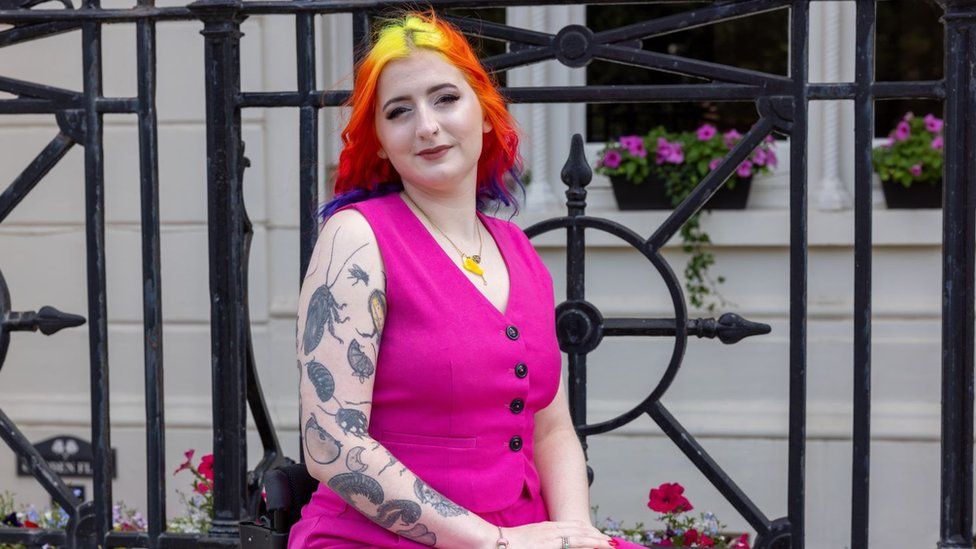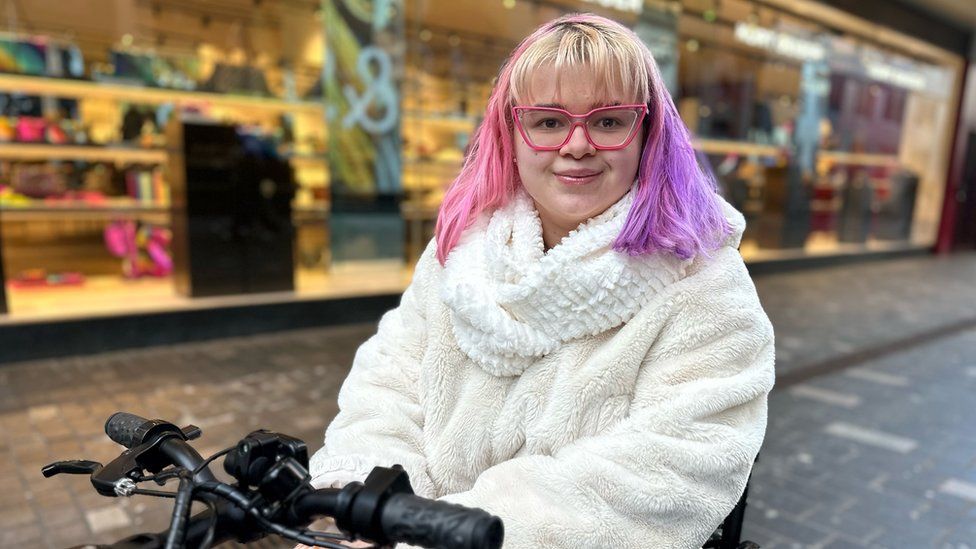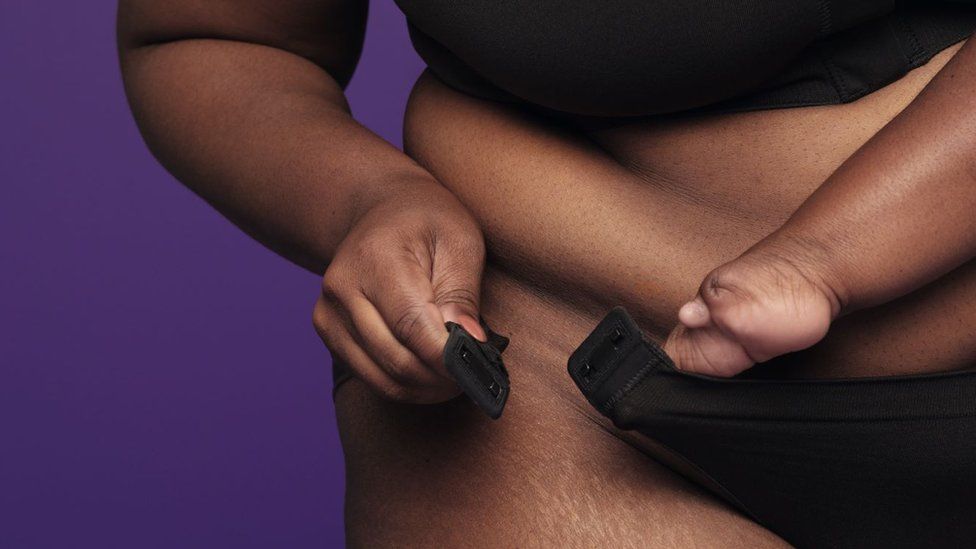
liza Rain hopes other retailers will follow Primark's lead when it comes to accessible clothing
Disability campaigners say new lines of accessible underwear available on the High Street are "really important".
Primark is the latest to announce plans to offer more affordable accessible items in its almost 200 UK shops.
The chain is the latest to develop a new lingerie line in collaboration with disabled people which includes bras and pants with magnetic closures.
Eliza Rain, a content creator, says adaptive underwear helps people with disabilities feel more confident.
"There have been times where I've had a couple of wardrobe issues and then I end up just getting frustrated with what I'm wearing," the 26-year-old from London tells BBC Newsbeat.
"You just want to feel confident in yourself and if something isn't working in my chair, that can just be frustrating and doesn't make me feel that great or confident."
Primark is not the first mainstream retailer to launch an accessible line. George at Asda has an Easy On Easy Wear range for under-16s.
Eliza, who is an ambulatory wheelchair user, says the easy closures Primark have used, including Velcro and magnetic clasps, as well closures at each side of the briefs, are an important feature because it means you don't have to bend down to put them on.
"Underwear for me can be quite difficult and I really benefit from having clasps on the side, because then they're easier to take on and off if I'm lying down," Eliza says.
Caitlin Hartwell, 25, agrees.
She has limited mobility and says she's not able to dress herself at the moment but accessible underwear will help her to regain some independence.
"I will be able to fasten my own bra or put my own underwear on," she says.

ophia Dunn says people with disabilities want clothes that meet their needs but are still stylish
Others say it's a big self-confidence booster.
"You don't feel as confident if you don't look like you're slaying," says 19-year-old Sophia Dunn, from Liverpool.
Sophia was born with cerebral palsy, a condition that affects movement and co-ordination.
"I can't walk, I can't reach around with my arms very well, my legs don't go straight so it would be nice if there was stuff to just slip on," she says.
"I don't like things with zips and buttons - it might be nice when you're stood up straight but when you're sat down it digs in."
The new range offered by Primark is limited compared to its wider stock, offering only four pieces in one colour.
It will also not be available in all stores - seven will physically stock the items, and they'll be available for click and collect in about 64 of its 191 outlets in the UK.

The most important thing for Caitlin is the price. The underwear at Primark is retailing at between £8-12 per piece, which she feels is affordable.
"Obviously, being disabled, you can't work full-time a lot of the time, you don't get a big income. So it's hard to buy luxuries," she says.
Figures from charity Scope suggest disabled people are almost twice as likely to be unemployed and more likely to be living in poverty.
Caitlin says accessible garments tend to only be available from small independent businesses, where prices can be higher.
"There's a few online shops that are very expensive," Caitlin says, adding: "I can't think of one physical shop you can go in where you can buy adaptive clothing or underwear."
Primark has also pledged to be more inclusive by inviting experts to review its stores and figure out any changes that could make them more accessible.
"It's just going to make disabled people feel more heard and let them gain some of their independence back," Caitlin says.
From BBC
